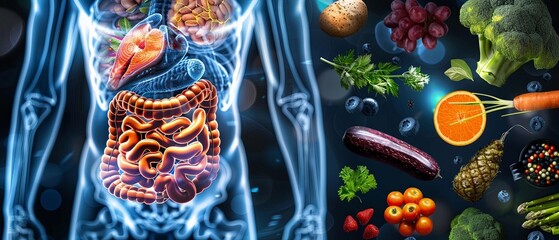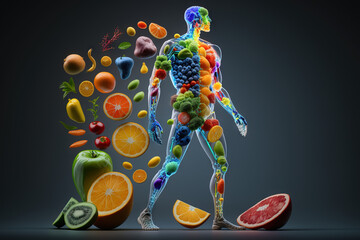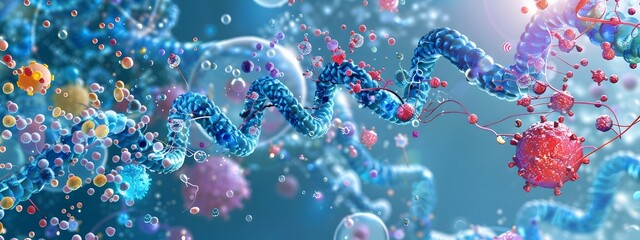Learn all about катаболищм (Catabolism), the process of breaking down nutrients for energy. Understand its role in health, weight loss, exercise, and more.
What is катаболищм?
Catabolism (spelled катаболищм in Russian-style characters) is the process in which your body breaks down large, complex molecules into smaller, simpler ones. This process is essential because it releases energy, which your body uses for everything from walking and thinking to growing and repairing itself. While this process may sound complex, it’s happening inside your body every single moment. Whenever you digest food or exercise, Catabolism is at work. It takes substances like carbohydrates, fats, and proteins and breaks them down into usable forms. This breakdown helps provide your body with the energy it needs to function properly. Let’s explore this in more detail in the paragraphs below.
Catabolism and Metabolism How They Connect
To understand катаболищм, it’s helpful to first understand metabolism. Metabolism includes all chemical reactions happening in your body. It’s divided into two main parts: Catabolism and anabolism. Catabolism breaks things down and gives your body energy, while anabolism builds things up and uses energy. For example, when you eat food, katabolic reactions break it down into smaller molecules. These molecules can then be used for energy or as building blocks by anabolic reactions. Both processes are necessary. Without Catabolism, there would be no energy, and without anabolism, your body couldn’t grow or repair. So, they work hand in hand to keep you healthy and active every day.
Why Catabolism Matters for Your Health
You might not think about Catabolism every day, but it plays a huge role in your health. Every time you move, think, or even sleep, you are using energy produced by katabolic reactions. This energy keeps your organs working and helps your body perform essential tasks. When Catabolism is not working correctly, you may feel tired, weak, or even gain unwanted weight. Understanding how Catabolism functions can help you make better choices for your health. Eating the right foods, staying active, and getting enough rest all help keep your katabolic processes running smoothly. So, taking care of your Catabolism means taking care of your body overall.
Energy from Catabolism
One of the biggest reasons Catabolism is important is because it provides energy. The food you eat contains energy stored in the chemical bonds of molecules. Through katabolic processes, these bonds are broken, and energy is released. This energy is usually stored in a molecule called ATP (adenosine triphosphate). ATP acts like a battery for your cells, powering everything they do. Whether you’re lifting weights, typing on a keyboard, or just breathing, you’re using ATP made during Catabolism. Without Catabolism, your body would not have the fuel it needs to do anything at all. That’s why it’s considered one of the most vital functions in your metabolism.
Catabolism of Carbohydrates
Carbohydrates are one of the main sources of energy for your body, and they are broken down during Catabolism. The process starts in your mouth when enzymes begin to break down starches. As the food travels to your stomach and intestines, it continues to be broken down into glucose. Glucose then enters your bloodstream and is used by your cells to make energy. This process is called glycolysis. In glycolysis, one glucose molecule is split into two smaller molecules, releasing energy in the form of ATP. This is just one of many katabolic reactions that help your body get the energy it needs from carbs.

Catabolism of Fats
Fats are another important source of energy, especially when you’re not eating enough carbohydrates. During Catabolism, fats are broken down into smaller units called fatty acids and glycerol. These molecules are then used by your cells to make ATP. The process of breaking down fats is called beta-oxidation. It occurs mainly in your liver and muscles. Fats provide more energy than carbohydrates, but the process takes longer. That’s why your body usually uses carbs first. However, during fasting or exercise, your body may switch to using fats for energy. Understanding fat Catabolism helps explain why exercise and diet affect weight loss and energy levels.
Catabolism of Proteins
Proteins are usually used for building muscles and repairing tissues. However, in times of stress or starvation, your body can also use proteins for energy. During Catabolism, proteins are broken down into amino acids. These amino acids can then be converted into molecules that enter the energy-making pathways. This process is not ideal because it can lead to muscle loss, but it is essential for survival when other energy sources are low. Protein Catabolism is more common during illness, injury, or intense exercise. It’s important to eat enough protein to rebuild what is lost and keep your body strong.
Hormones That Control Catabolism
Your body uses hormones to control when and how Catabolism happens. Some of the main hormones that promote Catabolism include cortisol, adrenaline, and glucagon. These hormones are usually released during stress, fasting, or exercise. They tell your body to break down stored nutrients and release energy. For example, cortisol helps your body use fats and proteins for energy. Adrenaline increases your heart rate and prepares your muscles for action. Glucagon tells your liver to release glucose into the bloodstream. All of these hormones help ensure your body has enough energy to face challenges and stay balanced.
Catabolism During Exercise
When you exercise, your muscles need more energy than usual. Katabolic reactions help provide this energy quickly. First, your body uses the glucose stored in your muscles. Then, if the exercise continues, it starts breaking down fat and sometimes even protein. This is why long workouts can lead to weight loss and muscle fatigue. However, Catabolism during exercise is natural and necessary. It gives your body the energy it needs to keep going. After exercise, your body switches to anabolic processes to repair and build muscle. So, exercise supports both Catabolism and anabolism in a healthy balance.
Catabolism and Weight Loss
Many people want to lose weight, and understanding Catabolism can help. Weight loss happens when your body burns more energy than it takes in. Katabolic processes are what make this possible. By breaking down fat and other stored energy sources, your body sheds extra weight. Eating a balanced diet and staying active can increase Catabolism. However, extreme dieting or over-exercising can lead to too much protein breakdown, which is harmful. It’s important to support healthy Catabolism with proper nutrition and rest. That way, you lose fat while keeping your muscles strong.
Differences Between Catabolism and Anabolism
Catabolism and anabolism are two sides of the same coin. Catabolism breaks things down and releases energy. Anabolism builds things up and uses energy. For example, after a meal, your body enters an anabolic state to build muscle and store nutrients. When you’re fasting or exercising, Catabolism takes over to provide energy. Both processes are essential. Without Catabolism, you wouldn’t have energy. Without anabolism, you wouldn’t grow or heal. They must be in balance for your body to function properly. That’s why a good lifestyle includes activities and nutrition that support both.

How Sleep Affects Catabolism
Sleep is crucial for your overall health, including Catabolism. While you sleep, your body continues to break down nutrients and remove waste. Hormones that control Catabolism, like cortisol, are also regulated during sleep. Poor sleep can disrupt these hormones, leading to fatigue, weight gain, and other issues. On the other hand, good sleep supports a healthy balance between Catabolism and anabolism. It helps your body recover from the day and prepare for the next. So, if you want your metabolism to work well, make sure you’re getting enough quality sleep every night.
Foods That Support Catabolism
The right foods can boost Catabolism and keep your metabolism running smoothly. Foods high in protein, like chicken, fish, eggs, and beans, help maintain muscle and support energy production. Whole grains, fruits, and vegetables provide the carbohydrates and fiber needed for healthy digestion and glucose control. Healthy fats from nuts, seeds, and oils are also important for long-term energy. Avoid processed foods and added sugars, which can slow down your metabolism. Staying hydrated is key too, since water helps your cells carry out chemical reactions, including Catabolism.
Catabolism and Aging
As you get older, your metabolism can slow down. This is partly because Catabolism becomes less efficient. You might notice that it’s easier to gain weight and harder to stay active. Muscle mass may decrease, and energy levels can drop. However, you can support healthy Catabolism through exercise, especially strength training, and eating a protein-rich diet. Staying active and eating well helps maintain your muscle mass and keeps your metabolism strong. So, even as you age, you can support Catabolism and feel your best.
How Stress Affects Catabolism
Stress has a big impact on Catabolism. When you’re stressed, your body releases cortisol, which triggers katabolic processes to give you quick energy. This can be helpful in short bursts, like during a workout or emergency. But if you’re stressed all the time, constant Catabolism can break down too much muscle and weaken your immune system. That’s why managing stress is so important for your health. Relaxation techniques, deep breathing, and physical activity can all help reduce stress and keep your Catabolism balanced.
Catabolism in Illness and Recovery
When you’re sick or injured, your body uses Catabolism to release energy for healing. It breaks down nutrients and tissue to fuel the immune response and repair damage. This process is natural and necessary, but it can also lead to muscle loss if it goes on too long. That’s why good nutrition is especially important during recovery. Eating enough protein, vitamins, and minerals helps your body rebuild what was lost. Supporting Catabolism during illness helps you heal faster and regain your strength.
Genetic Influence on Catabolism
Your genes also play a role in how your body handles Catabolism. Some people naturally have faster or slower metabolic rates, partly due to their DNA. This means they may burn energy more quickly or slowly than others. Understanding your unique genetic makeup can help you choose the best diet and lifestyle. While you can’t change your genes, you can still influence your Catabolism through healthy habits. Exercise, good nutrition, and sleep can all help optimize your metabolism, no matter your genetic background.

Supplements That Affect Catabolism
Some supplements claim to boost Catabolism and support weight loss or muscle building. Common examples include caffeine, green tea extract, and protein powders. These can increase energy use or provide the building blocks your body needs. However, supplements should not replace a healthy diet. Talk to a doctor before using them, especially if you have health issues. The best way to support Catabolism is through whole foods, exercise, and sleep. Supplements may help, but they are not a magic solution.
Catabolism in Fasting
Fasting is a state where you don’t eat for a period of time. During fasting, Catabolism increases as your body breaks down stored energy to keep you functioning. First, it uses stored glucose, then it moves on to fats and proteins. This process can help with weight loss, but it’s important to fast safely. Too much protein breakdown can harm your muscles. Drinking water and eating nutrient-rich foods when you break your fast can help balance your Catabolism and anabolism.
Final Thoughts
Understanding катаболищм helps you take better care of your body. It’s a vital process that gives you energy and helps you survive. Whether you’re active or resting, your body is always using Catabolism. Supporting it with good sleep, healthy food, exercise, and stress management is key. When Catabolism works well, your whole body works well. So, take the time to learn about your metabolism and make smart choices every day.
Read Also: Unlocking the Mystery of Ыьфкецфн


